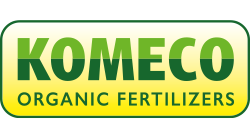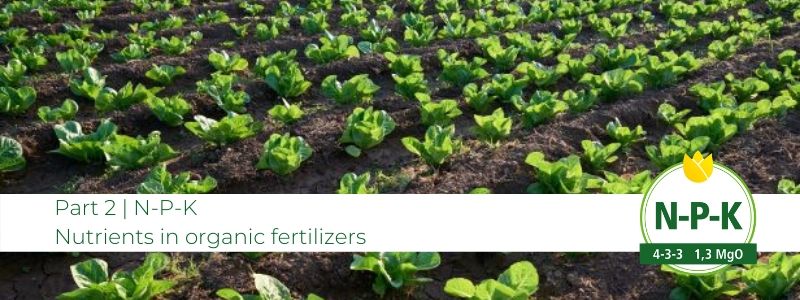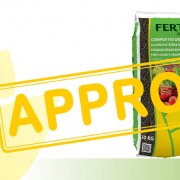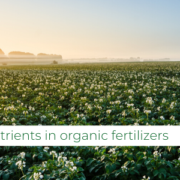N-P-K; three important nutrients in organic fertilizers (part 2)
Organic fertilizers contain different nutrients feeding the soil and the plant in their own way. In this second series of five, we explain in clear language what other nutrients, in addition to organic matter, can be found in organic fertilizers. This time we outline the three musketeers of organic fertilizers: the N-P-K. What do the abbreviations stand for and what do they offer the soil and plant?
Many people are aware of the abbreviations, but just for clarity the N stands for nitrogen, P for phosphorus (so called phosphate) and K for potassium. Three important nutrients and each with its own essential significance for both soil and plant.
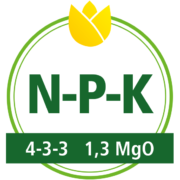
Nitrogen (N) essential for the growth of a plant
Nitrogen is an extremely important part of the diet for growing crops or plants. It ensures the build-up of DNA and proteins and a plant needs nitrogen to grow properly. In addition, it gives the leaves and stems their beautiful green colour. Nitrogen is present in organic fertilizers in two ways, in mineral form and organically bound. The mineral form is immediately available for the plant and the organically bound form will gradually release due to degradation by soil life. For more information about the development of the availability of nitrogen during cultivation please take a look at plant nutrition.
Phosphorus (P) for root development
The roots of a plant develop better when the plant receives phosphate. If the roots can develop better, the plant will be able to extract more water from the soil and then the plant will grow better. In short, phosphate plays an important role in the growth and development of a plant and therefore especially in the early stages of growth. If the growth progresses smoothly in the beginning, this will result in better formation of the roots, tuber and seed.
Potassium (K) focuses on the quality of the plant
Potassium ensures the firmness of a plant and offers resistance to fungi and diseases. The element is important for the transport of, among others, nitrogen to the plant. It also makes a plant better resistant to cold and drought. In addition, it ensures better fruitification and flowering formation. Potassium actually influences the quality of the final crop, because it improves taste, odour, colour as well as storage life.
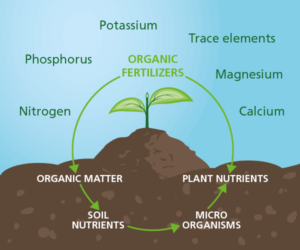
N-P-K release
Our organic fertilizers have homogeneous nutritional values. As an example we have our own brand FERTISOL organic fertilizers with an average N-P-K content of 4-3-3. Our fertilizer works with the « slow release » principle. After spreading, the nutrients will be released slowly and not at once, because the soil releases the nutrients. As a result, the organic fertilizer pellets have a long-lasting effect and it means a constant stream of nutrients towards the crop and the soil. It differs per nutrient how much will be released and the period in which it will be released. Find out more about how plant nutrition works and how our organic fertilizers contribute to plant growth.
Organic fertilizers keep the soil healthy, the soil life alive and contribute to a sustainable world. A healthy soil starts with Komeco!
Did you miss the first part about nutrients in organic fertilizers? In the first article we ouline the nutrient ‘organic matter’. Don’t miss it and read more about organic matter.
Organic fertilizers for agricultural professionals
Adding organic fertilizer into the soil is therefore important, but the added value varies per soil type. For professional use in agriculture, horticulture and fruit and vegetable cultivation, we advise you to look at what your soil needs together with a fertilizer advisor.
